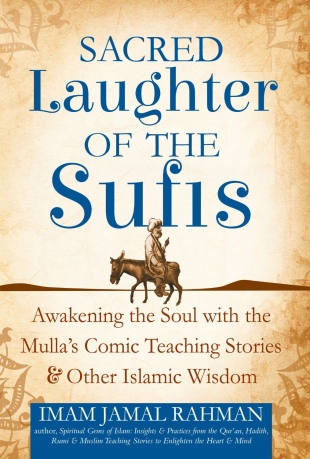"It is wise to meditate on a timeless Sufi insight: 'A Sufi is a son or daughter of the present moment.' This insight brought midnight relief to a ninth-century Muslim commander who had been captured and thrown into prison. Beside himself with anxiety and fear, he was unable to sleep because he was certain he would be tortured and killed the next day. But then, deep inside, he heard the words of his Sufi teacher: 'A Sufi is a son of the present moment.' At that moment he realized that his fearful thoughts about the next day were merely thoughts, not real. Only the present moment was real, and with that realization he was able to fall asleep. Morning came and instead of being killed, he was exchanged for a prisoner from the opposing side. For us, too, a more hopeful morning dawns when we repeat that Sufi mantra and open ourselves to the truth that only the present moment is real.
"To be in the present moment does not mean that we simply ignore past or future events. Of course we need to learn from our experiences and plan for what lies ahead. Rather, it means that we should be conscious of our thoughts and give ourselves permission to spend a certain amount of intentional time in the past or future. It could be as simple as telling oneself, 'I give myself permission to spend the next twenty minutes feeling my regrets of the past and learning from them' or 'I give myself twenty minutes to feel anxiety about this future possibility and make necessary plans.' In this way we honor the present moment, and by setting a time limit we guard ourselves against sliding into the morass of unconscious anxiety, overcome by the demons of fear and regret.
"We know from our own lives how important it is to pay attention to the present moment, and how costly it can be when we don't. We have all had accidents (hopefully, only minor) caused by a moment of inattention: stubbed toes, sprained ankles, spilled milk, burned cookies.
"The Mulla wasn't paying attention when he went to the market to purchase flour and salt. 'Make sure not to mix the two,' cautioned his wife. The shopkeeper filled his dish with flour and after he measured the salt, the Mulla turned the plate over to provide a separate place for the salt. The flour fell to the floor but the salt was safe. When he returned home, his wife asked, 'Where's the flour?' 'Right here,' said the Mulla, turning the plate over and dropping the salt to the floor. Truly, the Mulla lost his flour and salt due to his inattention, just as we lose the blessings of the moment when we allow ourselves to sleepwalk unconsciously through our precious days."
